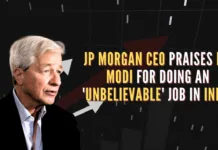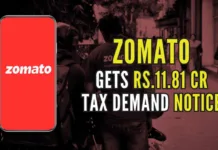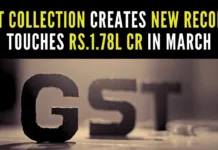
“The whole world is looking at India. Seven thousand reforms alone by GOI for ease of [doing] business and minimum government, maximum governance.”
[dropcap color=”#008040″ boxed=”yes” boxed_radius=”8px” class=”” id=””]I[/dropcap]n his meeting with the CEOs of top US companies, Prime Minister Narendra Modi has tried hard to sell India as an attractive investment destination. But will it impress the hard-nosed American businessmen? That is a billion-dollar question.
The tycoons included Tim Cook of Apple, Sunder Pichai (Google), John Chambers (Cisco), Jeff Bezos (Amazon), Shantanu Narayen (Adobe), Ajay Banga (Mastercard), David Farr (Emerson), Doug McMillon (Walmart), and Punit Renjen (Deloitte Global), Jim Umpleby (Caterpillar), Alex Gorsky (Johnson & Johnson), Jamie Dimon (JP Morgan Chase), and Marillyn Hewson (Lockheed Martin).
Unlike the previous, Congress-led dispensation, which was infested with and influence by anti-business elements, Modi’s government is actually interested in getting investment in India. The Prime Minister is earnest, and he said the right things. A consummate salesman that he is, he showcased, among other things, the new goods and services tax (GST) regime. Its implementation is a complex task that may well turn out to be “a subject of studies in US business schools,” he said. “This shows India can take big decisions and implement them swiftly.”
He even revived the old slogan ‘minimum government, maximum governance.’ Gopal Bagley, spokesman for the Ministry of External Affairs quoted him as saying, “The whole world is looking at India. Seven thousand reforms alone by GOI for ease of [doing] business and minimum government, maximum governance.”
Modi tweeted after the 90-minute meeting, “Interacted with top CEOs. We held extensive discussions on opportunities in India.”
[dropcap color=”#008040″ boxed=”yes” boxed_radius=”8px” class=”” id=””]T[/dropcap]hat there is sincerity in his efforts is indisputable. The endeavours to involve the domestic private sector in defence production will be doubly beneficial for the country: while strengthening national security, it will give a big fillip to manufacturing which has been languishing for quite some time. The government has already finalised the strategic partnership policy to augment the involvement of the Indian private sector.
Many other big and small steps have been taken. To start a business, for instance, it is no longer required to have a common company seal. The process of registration can be completed within two working days. ESIC and EPFO compliances have been made online. Legislation has been enacted to enforce contracts.
There is one thing all businesspersons are afraid of, it is unpredictability.
Not only the power situation has improved, getting electricity has also been made easier, many of the processes being made online. The Insolvency and Bankruptcy Code, 2016, has been introduced.
So far, so good. While the Modi government desires investment in the country, there is a wide gulf between its desires and many of its actions. The demonetization of high currency notes last November, for example, was a move that defied logic and common sense. Apart from slowing down growth, as the recently released official figures showed, it introduced anxiety in the minds of industrialists. If a government can announce such a major step without rhyme or reason, it can do anything unpredictable; and there is one thing all businesspersons are afraid of, it is unpredictability.
Unpredictability is also on account of court judgments, the two of them which caused consternation in certain sectors was the ban on liquor vends near highways and the sudden withdrawal of thousands of vehicles on the grounds of high emissions. The judiciary in India is independent, which is India’s strength, but the Modi government didn’t do anything to address the concerns of the enterprises hit by the two verdicts.
Then there is the threat of prohibition catching up. If that happens, it would another big disruption. The Bharatiya Janata Party-ruled Madhya Pradesh government has alluded to such move.
[dropcap color=”#008040″ boxed=”yes” boxed_radius=”8px” class=”” id=””]F[/dropcap]urther, the promise of minimum government, maximum governance sounds hollow against the backdrop of the proposed National Anti-Profiteering Authority (Napa) that is supposed to monitor that the benefits of GST get filtered down to consumers.
Global investors take the views of rating agencies seriously which place India just above the “junk” status. The big three—Moody’s, Standard & Poor’s and Fitch Ratings—have been unrelenting, primarily because of fiscal deficit concerns. “We view ongoing central government deficit reduction as supportive of India’s credit profile,” Moody’s recently said in a note. “However, the recent widening of Indian state deficits has more than offset the narrowing of the central government deficit.”
With the loan waiver epidemic spreading like wildfire, state deficits will surely go skywards. Almost Rs 1 lakh crore of waivers have already been announced, and more may follow.
In such a milieu, the CEOs of the US, or from anywhere else, are unlikely to be impressed by the pledges made by Modi and his team. This is not to say that they won’t invest in India, but the negatives will certainly weigh on them.
Note:
1. The views expressed here are those of the author and do not necessarily represent or reflect the views of PGurus.
- Liberty Is Penalized, Violence Goes Untouched - December 21, 2019
- Rahul’s Howdy bloomer - September 22, 2019
- Chidambaram’s hypocrisy - August 22, 2019











Peg salary of govt(both central &state) employees,banks&other quasy govt organisations & work to ensure some kind of decent comparison between income levels of aam admi & the salaried class; then the slogan”Sab ka saath ,Sab ka Vikas”would appear more meaningful & appreciable.
We all want Modi and India to succeed, but the sad story of this government is even positive criticism is not accepted. This is a very good article by Ravi Shanker Kapoor, pointing fingers where things have gone wrong. Three years and after so many foreign visit including United states by Modi, if you have not attracted FDI, this visit is not going to change anything. Job creation of this government is totally hopeless and with this new pay commission for the government employee, farmers and private firms employee are going to be hardest hit. If average farmer monthly income is around Rs 2000/- in India, with urban centric government policies, life is going to be hard for majority of Indians.